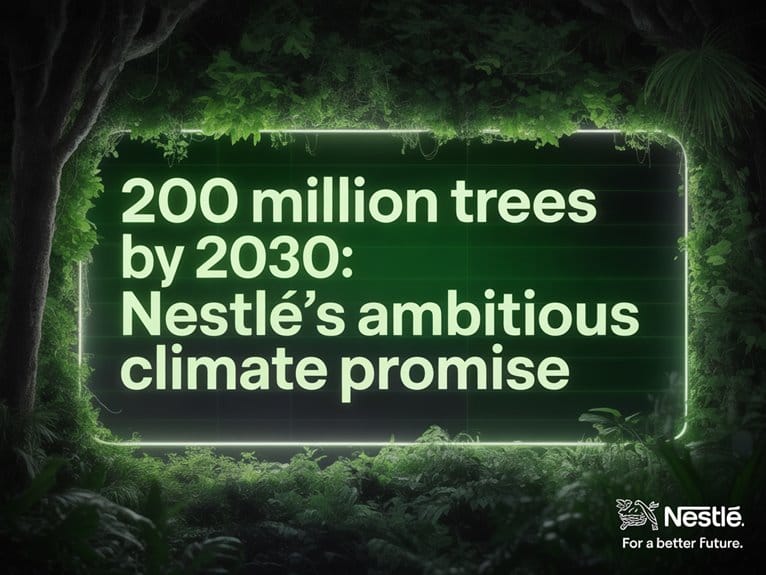As part of its global initiative to plant 200 million trees by 2030, Nestlé has launched two reforestation projects in Brazil. The initiatives aim to plant 11 million trees across 8,000 hectares in regions critical for cocoa and coffee production: the Atlantic rainforest in Bahia and parts of Bahia and Pará states. Partnering with reforestation startup re.green and chocolate maker Barry Callebaut, the projects prioritize tree biodiversity and carbon sequestration while supporting Nestlé’s goal to reach net-zero emissions by 2050.
The re.green project will plant 3.3 million native trees over 30 years in Bahia’s Atlantic rainforest. It’s expected to generate roughly 880,000 carbon credits by absorbing CO₂. Nestlé’s partnership with Barry Callebaut focuses on converting 6,000 hectares into cocoa-based agroforestry systems, blending crop cultivation with native tree planting. Nestlé funds 60% of this effort, signaling major corporate investment.
Both projects aim to restore ecosystems tied to ingredient sourcing, not just offset emissions. Agroforestry methods merge farming with ecological restoration, enhancing long-term soil health and reducing erosion.
Prioritizing ecosystem restoration tied to sourcing, agroforestry merges farming with ecological renewal, enhancing soil health and curbing erosion long-term.
Reforestation efforts could benefit local environments by reviving habitats for wildlife, improving water quality through watershed restoration, and capturing carbon to slow climate change. The 2025 projected cocoa harvest of 300,000 tonnes marks steady growth toward Brazil’s 2030 target of 400,000 tonnes. Planting diverse native species helps rebuild resilient ecosystems less likely to face future deforestation. These projects are designed to last decades, avoiding short-term fixes.
Local communities may gain jobs in forest management or sustainable farming. This investment highlights how private sector funding can drive large-scale forest restoration. Training programs teach farmers climate-smart methods, linking income opportunities with environmental care. Partnerships with groups like Barry Callebaut provide education and resources to strengthen sustainable practices.
Nestlé’s separate collaboration with ofi supports 25,000 farmers in Brazil, Nigeria, and Côte d’Ivoire to adopt agroforestry, aiming to plant 2.8 million trees and cut over 1.5 million tons of CO₂ by 2030.
Success hinges on long-term commitment. Nestlé’s projects depend on decades of growth, partnership stability, and community buy-in. While carbon credits and agroforestry offer measurable milestones, lasting impact requires preventing deforestation pressures and ensuring farmers thrive alongside restored forests.
The scale is ambitious, but whether it works will unfold over generations.





